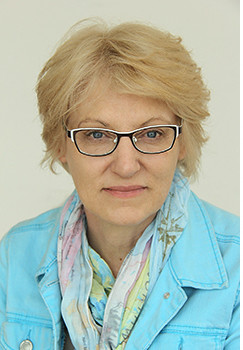Auburn University professors receive $90K grant to support collaboration between art and psychology
Article body
Auburn University College of Liberal Arts faculty members Barb Bondy, from the Department of Art & Art History, and Jeff Katz, from the Department of Psychology, have been awarded a $90,000 Research: Art Works Grant from the National Endowment for the Arts (NEA). The grant will support the collaboration between art and psychology in this study that examines the effects of training in observational drawing on behavioral and neural changes in the brain (brain plasticity).
“I congratulate Barb and Jeff on their NEA Research: Art Works award. Their collaboration is a prime example of how our faculty pursue worthy interdisciplinary projects that are applicable to our society. This is an outstanding achievement,” said College of Liberal Arts Dean Joseph Aistrup.
In pursuit of its commitment to advance the creative capacity of people and communities across the nation, the NEA announced 10 Art Works awards totaling $550,000 that investigate the value and/or impact of the arts, either as individual components of the U.S. arts ecology, or as they interact with each other and/or with other domains of American life.
“The variety and quality of these projects speaks to the wealth of creativity and diversity in our country,” said NEA Chairman Jane Chu. “From Atlanta, Georgia to Sparks, Nevada, NEA funding reaches thousands of communities, assisting local organizations and providing access to the arts to all.”
Art Works is the NEA’s largest category and focuses on funding the creation of art that meets the highest standards of excellence, public engagement with art, lifelong learning in the arts, and strengthening of communities through the arts.
Bondy and Katz will collect and analyze data at the AU MRI Center at the start and end of a 15-week drawing class at Auburn University. Two MRI scanning sessions will be conducted for each of the 20 participants at two separate points in the semester, one in the first week and one in the last week of classes. A control group of 20 participants will also be included. Data from the first week will be compared to the last week within and across two groups of participants. The research team will also include Gopi Deshpande, associate professor, electrical and computer engineering, and graduate research assistant Lily Strassberg.
“Interdisciplinary collaboration proves to be beneficial; new questions arise that may have otherwise not have been asked,” said Bondy. “We acknowledge the importance of internal support and NEA funding for this study as well as the important role of the AU MRI Research Center and its director Tom Denney – all have made this research possible.”
The class builds drawing skills while students explore a variety of drawing materials through observation and practical experience. If in the process of learning these skills brain plasticity can be identified and determined to have positive value in learning generally, it would strengthen conclusions that an observational drawing class does indeed offer valuable skills for all students including art and non-art majors.
“This is an innovative project at the intersection of art, psychology, and MRI technology. We are excited to be part of the team,” said Tom Denney, director, AU MRI Research Center.
While current research has provided evidence for changes in the brain after sustained art training there is much work to be done to determine which aspects of art training most affect brain plasticity.
This study aims to expand on previous studies and will broaden public knowledge of the relations between skills acquired when learning to draw and the impact on an individual’s brain and cognitive processes. Additionally, if brain plasticity developed through an observational drawing class occurs then future research can explore the potential for wider application offering a novel approach in which drawing skills are taught as an intervention for individuals with cognitive impairment for the purpose of stimulating neural plasticity.
“I am thrilled to be part of this project as the questions we are answering, by bringing together our findings from different areas, integrate neuroscience, learning, cognition, and how they can bear upon art education,” said Katz.
Funding will support 80 MRI scans and data analysis. The project period will commence in August 2018 and run through July 2019.
For more information on the NEA grant announcement, go to arts.gov.
Related Media
Media interested in this story can contact Communications Director Preston Sparks at (334) 844-9999 or preston.sparks@auburn.edu.
Auburn University is a nationally ranked land grant institution recognized for its commitment to world-class scholarship, interdisciplinary research with an elite, top-tier Carnegie R1 classification, life-changing outreach with Carnegie’s Community Engagement designation and an undergraduate education experience second to none. Auburn is home to more than 30,000 students, and its faculty and research partners collaborate to develop and deliver meaningful scholarship, science and technology-based advancements that meet pressing regional, national and global needs. Auburn’s commitment to active student engagement, professional success and public/private partnership drives a growing reputation for outreach and extension that delivers broad economic, health and societal impact.






